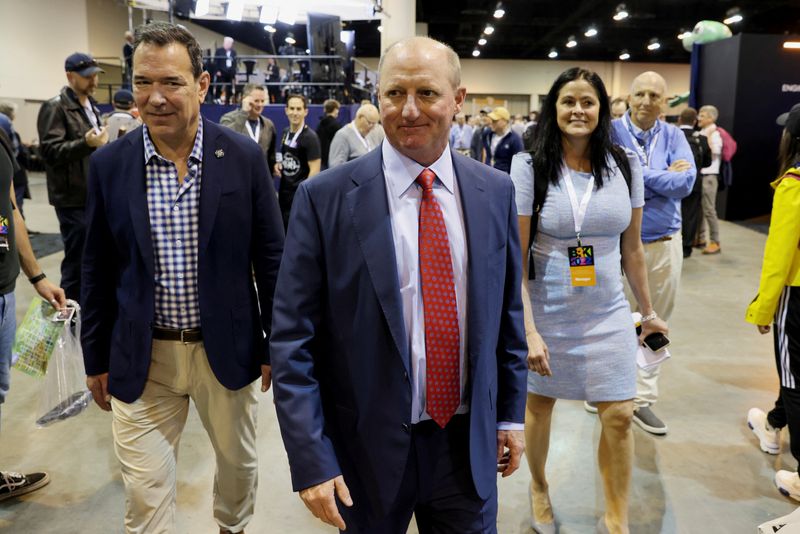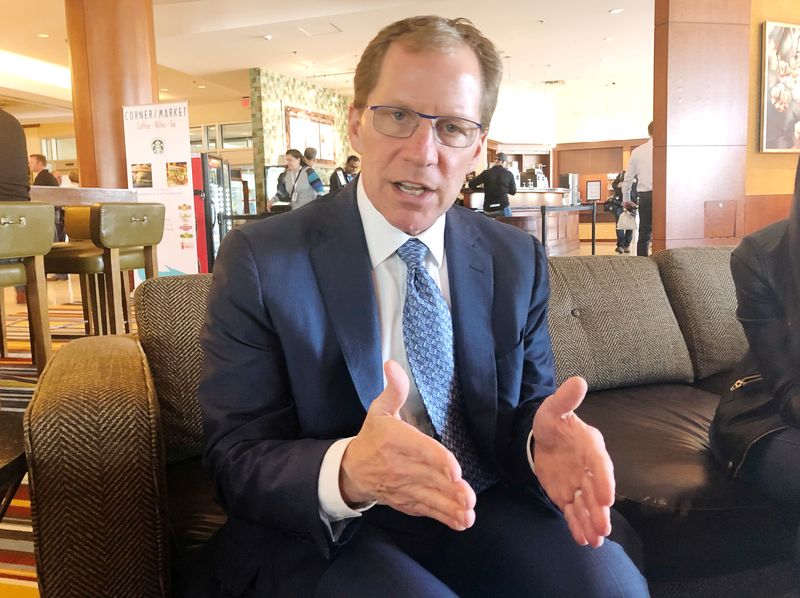By Jonathan Stempel
OMAHA, Neb. (Reuters) - The longtime chief executive of running shoe maker Brooks Running, a unit of Warren Buffett's Berkshire Hathaway (NYSE:BRKa) Inc, aims to more than triple revenue over the next decade, overcoming effects from supply chain disruptions and a lingering pandemic.
Jim Weber, 62, who has led Brooks since 2001, said in a Thursday interview that Berkshire management gives him the freedom to play the "long game."
He said that allowed Brooks to avoid spending cuts and layoffs even as the COVID-19 outbreak in Vietnam, where it makes most of its shoes, recently forced it to shut 45% of production for three months.
More people turned to running during the pandemic as they sought safer ways to exercise, including outdoors.
Despite signs that running participation is now "stabilizing" as more people return to gyms and resume other sporting activities, Weber said he expects sustained growth in how many people worldwide run for sport or fitness.
"In the world economy, there's lots of challenges but a lot of economic success, creating a middle class that's being more active investing in themselves, in fitness," Weber said. "Running could double in the next 10 years to 300 million people."
In 2021, Seattle-based Brooks boosted revenue 31% to $1.1 billion and sold 25% more shoes than a year earlier, fueled by the top-selling Ghost and Adrenaline GTS performance shoes.
Weber said sales could reach $4 billion in a decade, despite competition from larger rivals such as Nike Inc (NYSE:NKE).
He also said Brooks plans further expansion in Europe, where he believes sales could double by 2025.
Part of that growth may come from improving the shoes.
After successfully introducing external supports known as GuideRails on the Adrenaline and other stability-oriented shoes to control excess movement, Brooks plans to introduce nitrogen-infused technology in the midsole of its higher-priced Glycerin to reduce weight and boost cushioning.
"People who need the best technology are average runners, casual runners," Weber said. "Every runner deserves performance."
Weber said pandemic-related disruptions led to higher shipping costs and doubled how long it took to move shoes to U.S. distribution centers from the factory.
He said the pandemic also highlighted how a "single point of failure," such as a quarantine or even a cyberattack, could disrupt business.
Brooks plans to move some production to Indonesia over the next two years, while keeping a majority in Vietnam.
"The virus is with us," Weber said. "We're going to have to live with it."
Weber said Greg Abel, the Berkshire vice chairman to whom he reports, follows Buffett's playbook of thinking long-term.
"So many public companies are on a forced march to make their numbers every quarter," he said. "[We are] able to look down the road and play the long game. It's hard to estimate how powerful that is."
Weber curbed his own running after being diagnosed nearly 4-1/2 years ago with esophageal cancer.

He is now cancer-free. No longer able to do six-mile weekend runs, he instead does intervals on the treadmill, or alternates between short runs and walks outside.
"It's not what I want," he said. "But you take what you get."
